Strengthening Communities Through Intergenerational Interaction and Transnational engagement
The InterGenic project brought together youth and seniors across Europe to co-create green and digital solutions through intergenerational learning and collaboration. From community gardens to sustainability apps, these initiatives showcased how shared knowledge can drive innovation and support the EU’s twin transitions.
Petrou T.
7/1/20252 min read
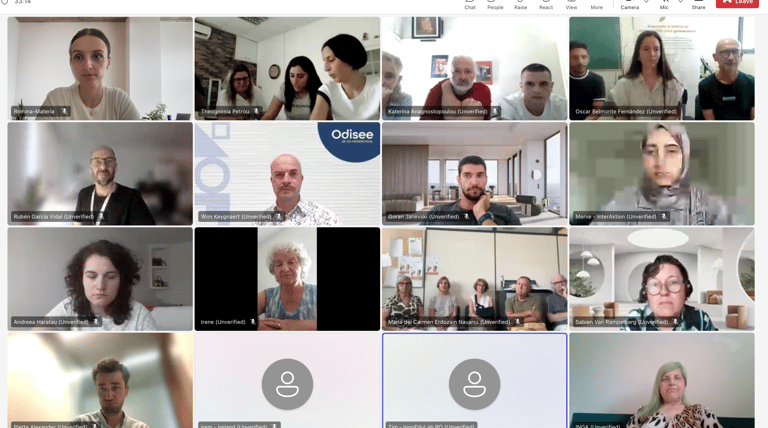

As a result of these sessions, each intergenerational group in the partner countries co-developed an ambitious and inclusive proposal combining green and digital elements for the action to promote and support EU’s twin transition. The ideas emerged from the intergenerational action groups in each partner country are the following:
a mobile application providing information about recycling and encouraging local citizens to practice recycling with tax benefits, etc (Spain),
a community garden to support the local productions (Austria),
a Health Center where youth and seniors can benefit from (Belgium),
an Intergenerational Sustainability Center for youth and seniors to interact and
create actions for their community (Cyprus),a YouTube channel promoting a sustainable modern lifestyle diet (Greece),
a mobile app for senior citizens and youth to use and have access to local products, connecting local farmers to community as well (Ireland) and
a Cultural programme to exchange practices and knowledge between seniors and youth (Romania)
The final session of this series of sessions was for representatives from each intergenerational group in each partner country to present their idea during an online transnational meeting. The online meeting took place on the 18 th of June where participants had the opportunity to share their action’s progress, gather feedback, and refine their local ideas in a collaborative manner. According to participants’ oral feedback this activity contributed to enhancing the results produced while at the same time both youth and seniors, felt very happy interacting with people coming from different cultural backgrounds and trying to communicate in a common language- the English language.
Overall, as evident from this activity, the approach of intergenerational action and interaction recognizes that lifelong learning which is defined as the ongoing development of skills and knowledge throughout a person’s life, is essential in our rapidly evolving society. By drawing on the strengths of both age groups, the sessions have not only strengthened lifelong learning and intergenerational bonds but also sparked social innovation, offering transferable solutions that support the EU’s green and digital transitions. These community-based collaborations serve as a living example of how education can bridge generations, empower communities, and drive sustainable change.
Stay connected with the InterGenic project to follow the progress, final outcomes, and upcoming actions.
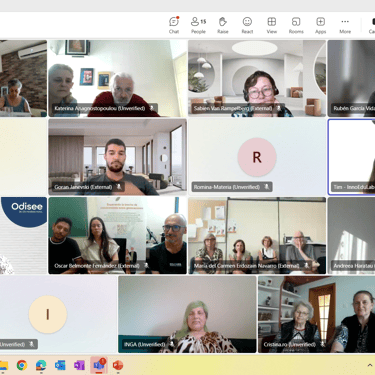
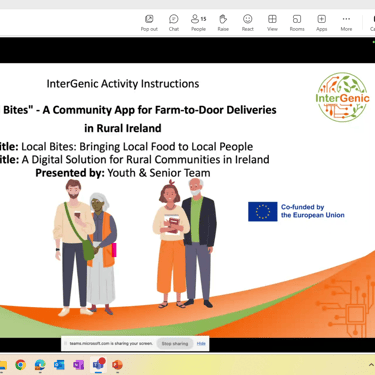
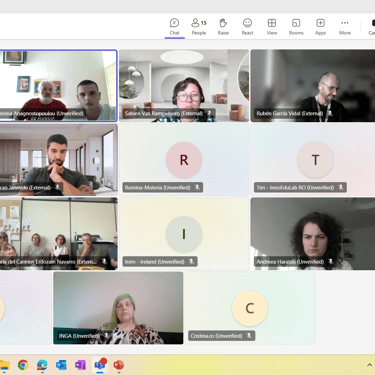
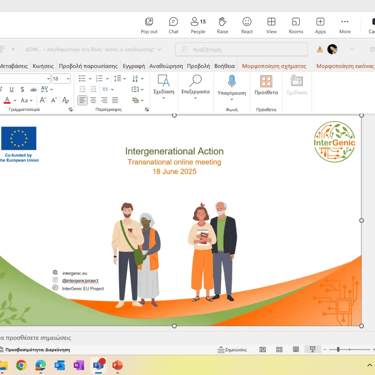
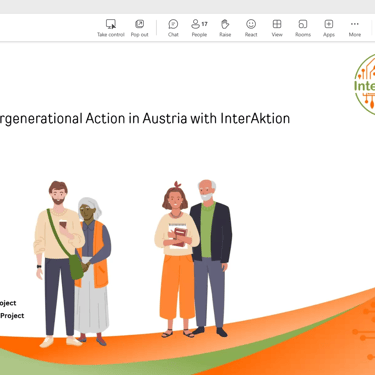
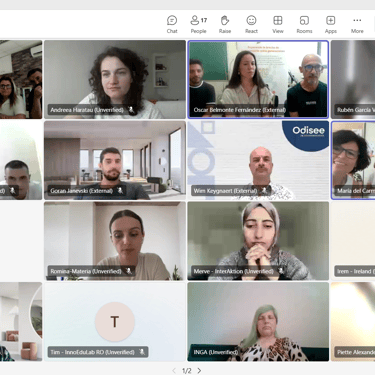
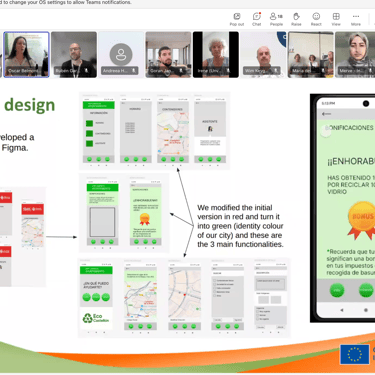

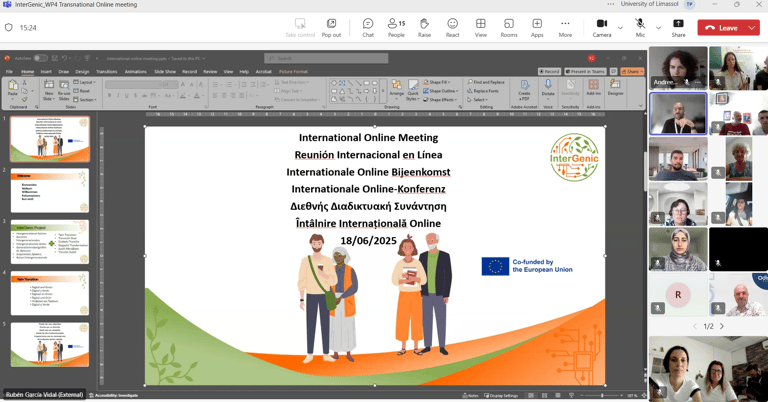

As part of the InterGenic project- “Supporting the EU's Twin Transitions through Intergenerational Learning, Exchanges of Knowledge, and Joint Actions”, a series of structured, interactive sessions took place between April- June 2025. These sessions required the active participation of youth and seniors from the local communities of each partner country; something that was successfully achieved.
At the heart of the initiative lies the Facilitators’ Handbook for Collaborative Action, a comprehensive guide developed by the partnership under the InterGenic project. Following a well-structured 12-step process, the handbook provides practical tools and strategies that facilitate intergenerational collaboration, while promoting lifelong learning and adult education. The handbook is available online and free to download. The sessions offered a powerful model for lifelong and intergenerational learning, rooted in shared experience, mutual respect, and co-creation. Participants explored themes such as digital literacy, green and sustainable practices, storytelling, and community problem-solving. With an emphasis on active collaboration between generations, seniors and youth worked together, shared their knowledge, digital and green skills, and lived experiences to create initiatives that can inspire similar actions across Europe.

Sign up for the newsletter and receive it via email
Available in the following languages:
Previous editions available bellow
Newsletter February-March 2024
Newsletter October - November 2025


Project number: 2023-1-ES01-KA220-ADU-000155225